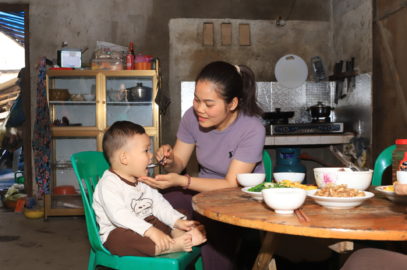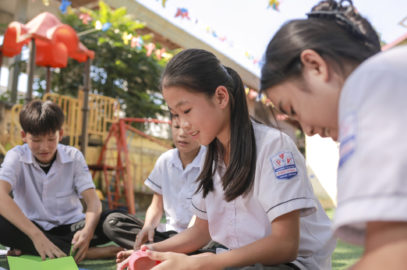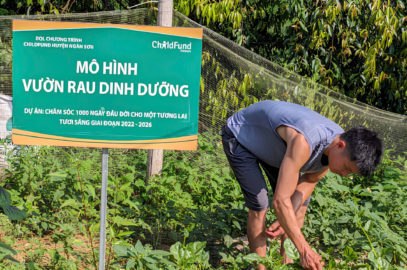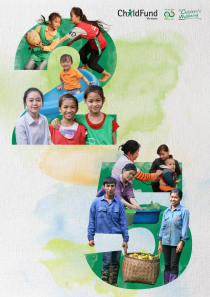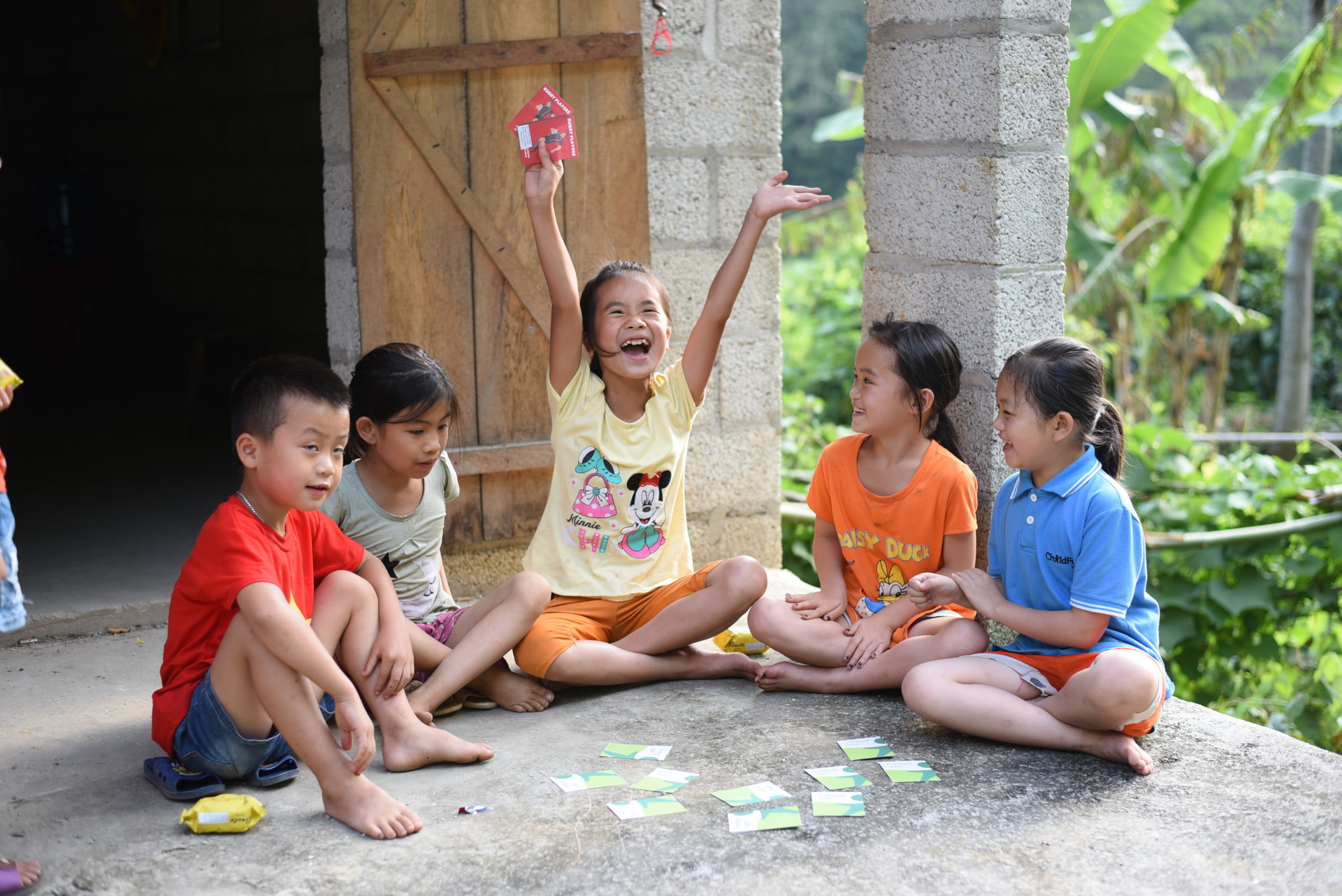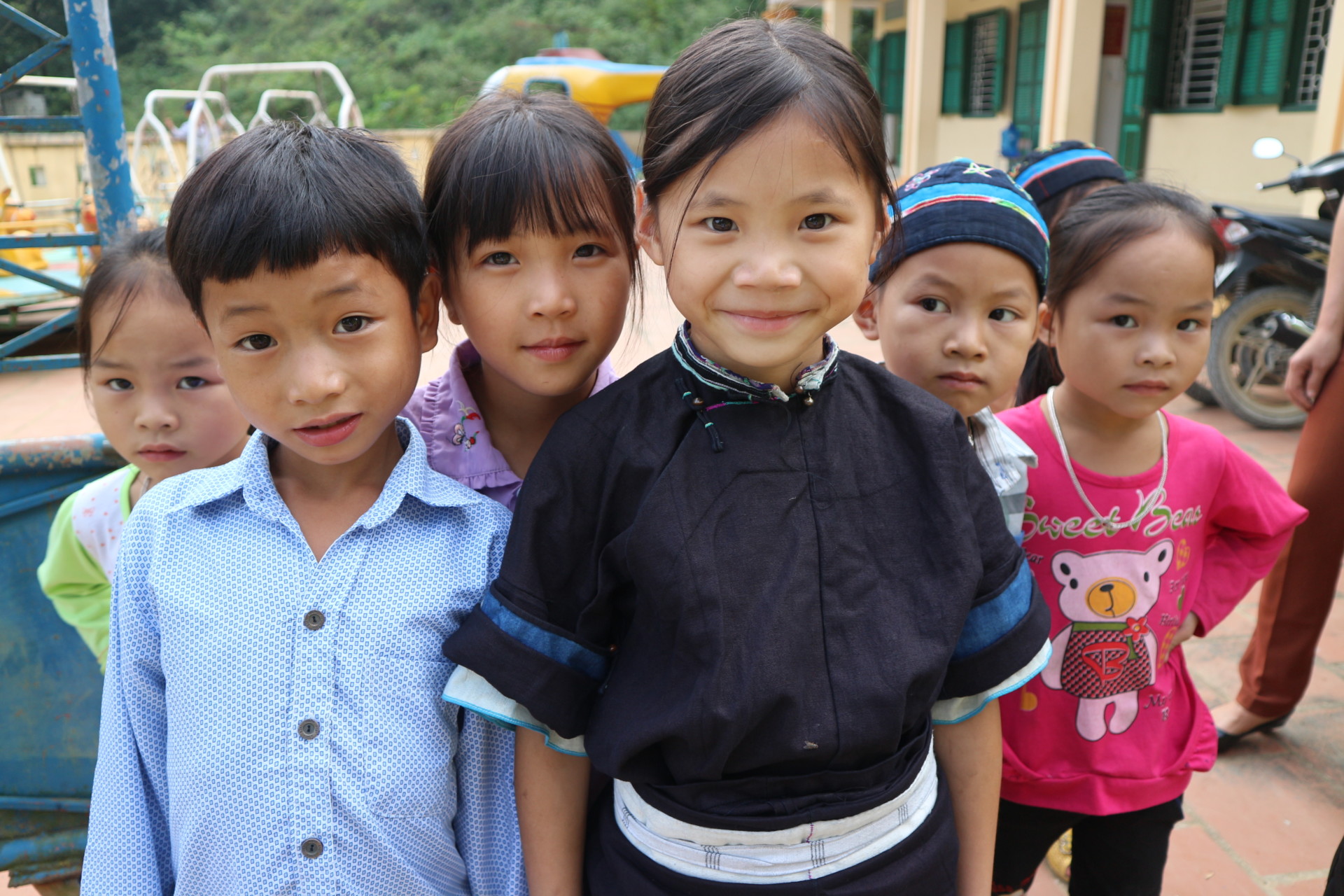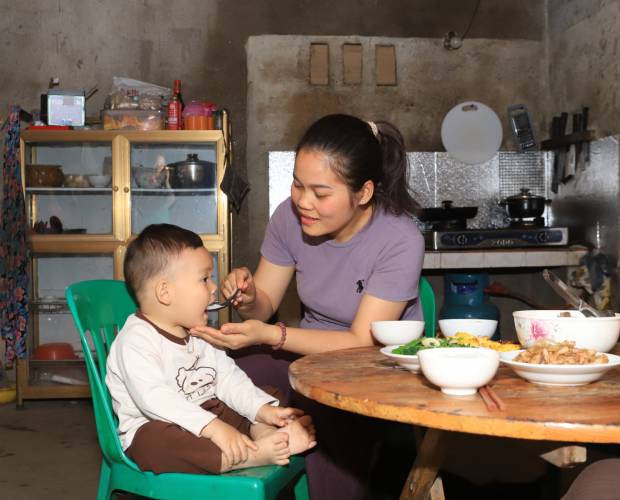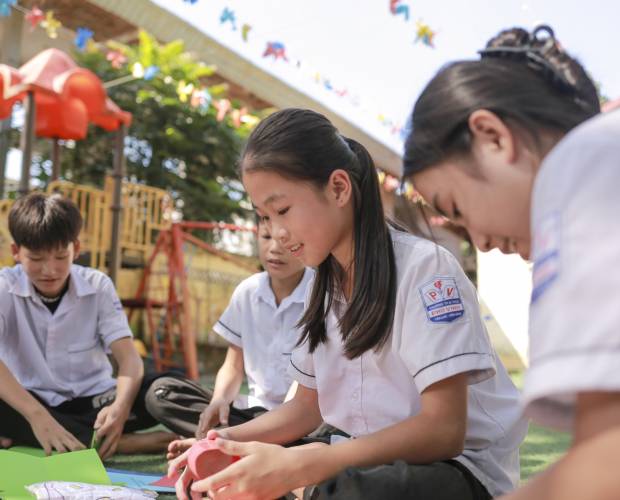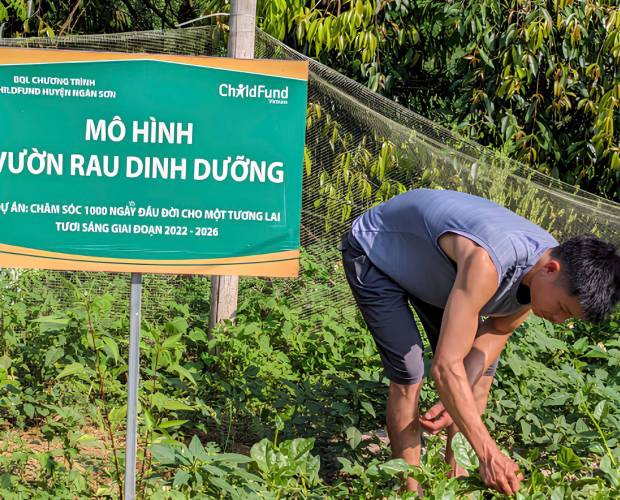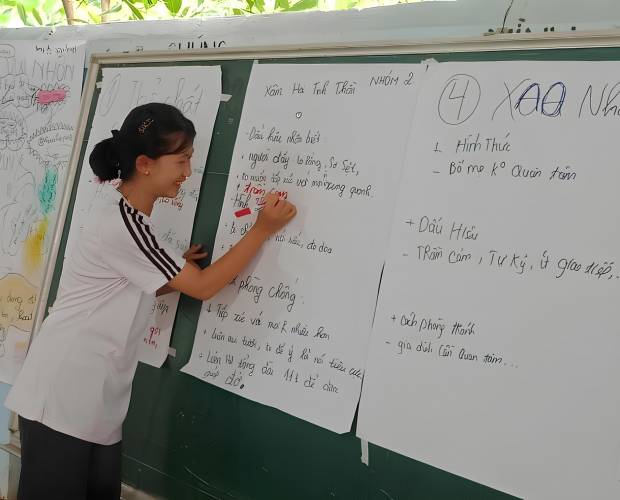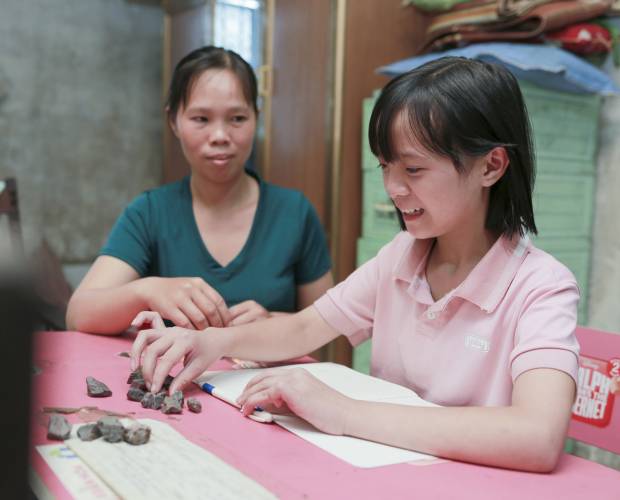PRESS RELEASE
Hanoi, 29 August 2019 – Increased income, diversified livelihoods, improved food security and reduced disaster risks have brought about significant changes in the wellbeing of ethnic minority community members, especially children and women, in Tra Linh District, Cao Bang Province as the result of the project “Building Strong and Resilient Communities in Rural Cao Bang (Viet Nam)” funded by the New Zealand Aid Program and donations from the New Zealand public through ChildFund New Zealand.
The project was implemented by ChildFund Vietnam and the People’s Committee of Tra Linh District from July 2014 to June 2019. The interventions targeted vulnerable communities of H’Mong, Tay, and Nung-Dao ethnic groups in the district’s six poorest communes (Cao Chuong, Luu Ngoc, Quang Han, Quang Vinh, Quoc Toan, and Xuan Noi).
Key achievements after five years of implementation include:
- Increased income: 60% of households reporting increased income (compared to 2014);
- Increased household assets: 36% of households having motorcycles and 38% of households building improved latrines for the first time by 2019; 32% of households having farming machines for the first time by 2019; 83% of households having cattle in 2019, an increase of 20% from 2014;
- Better nourishment for children: 95% of households having three meals a day for children and 60% of them reporting better quality of meals by 2019; rate of malnourished children (including stunting) in preschool reduced to 5% compared to the average rate of 30.3% for the Northern provinces by 2019;
- Higher school enrolment: by 2019, 100% of children in surveyed households enrolling in school; the majority of female loan/micro-credit recipients reporting spending the additional income on their children’s education;
- Reduced disaster risks: TOT training were delivered for 100 people as core groups and 50 village-levelled Disaster Risk Reduction (DRR) plans were developed, based on which 03 bridges and 08 village roads were constructed to ensure children’s and villagers’ safety; and
- Key successful interventions include irrigation systems, income generation models of cow and goat raising, passion fruit farming, maize post-harvest storage, and saving and credit schemes for ethnic minority women and youths.
New Zealand Ambassador to Vietnam, H.E. Wendy Matthews, commented on the project, “I am proud of the impact of this project in terms of building strong local communities. Our support was very practical, with a range of activities implemented to improve agricultural production, lift families’ incomes and improve disaster resilience. Altogether 1,400 local families, all of them ethnic minorities in Tra Linh District, benefited from this New Zealand – ChildFund project.
Our investment in Cao Bang is an example of New Zealand’s commitment to supporting vulnerable communities across Vietnam to strengthen their ability to decide their own future, and to live to their full potential.”
Sharing at this event, Ms Nguyen Thi Bich Lien, ChildFund Vietnam Country Director said “ChildFund Vietnam has partnered with local governed in Cao Bang since 2010 to implement community development initiatives to enable child right promotion and children to be confident to say “I have a future”. This five year project, thanks to the support from ChildFund New Zealand and New Zealand government, has brought about positive impacts and changes to the lives of thousands of children and their families in Tra Linh. The success and lesson learnt from this project also encourage us to continue such quality and sustainable approach in our support interventions to the most vulnerable people and children in the ethnic minority of Vietnam.”
The project also promises high sustainability with the project team’s focus on facilitating participation, contribution and ownership by local farmers and partners, especially local government agencies, of all project’s activities and results from the beginning.
